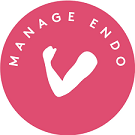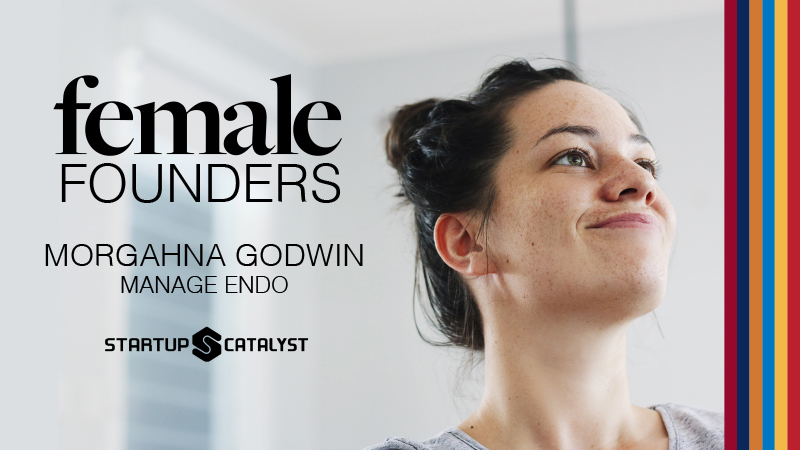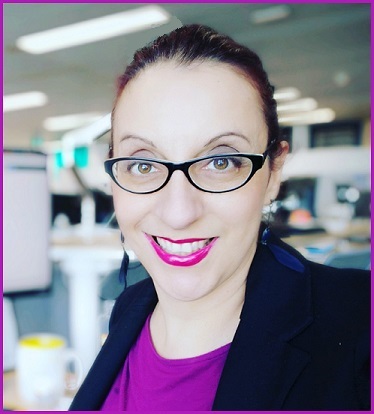Welcome to ‘Female Founders’, the Information Age series profiling 12 women who have grabbed the entrepreneurial reins and ridden into the unpredictability of start-up life.
We talk to the women about their business, entrepreneurship journey and advice they’d give to other women considering starting their own business.
Information Age interviewed all 12 women on the Start-up Catalyst Mission to London this year. Start-up Catalyst runs regular missions for start-ups, investors, and other leaders to some of the world’s top tech hotspots, such as Silicon Valley, Israel, Hong Kong and London. The goal? To transform both the individual and innovation landscape in Australia.
Today we speak with Morgahna Godwin, founder of Manage Endo.

Name: Morgahna Godwin
Business: Manage Endo
Established: 2018, Bundaberg
No. of employees: 1
No. of customers: 185
Information Age: What’s your business all about?
Morgahna Godwin: Manage Endo is an app, a data-driven tool to manage endometriosis. Endometriosis is a disease that affects one in 10 women. More broadly, it affects 176 million women worldwide. My idea came out of my own experience – I have Stage 4 endometriosis. There are four stages: one being mild, four being severe endometriosis. I live with severe endometriosis. My management strategy was morphine, Tramadol, anti-inflammatories, stomach lining drugs, and anti-nausea meds. I was able to come off that using a data-driven approach, and I thought if that can help me, that can help the other 176 million women who have endometriosis.
IA: What is endometriosis?
Morgahna: Endometriosis is clinically defined as tissue similar to tissue that lines the uterus, growing in places outside the uterus. At a level of living with the disease, the realities are much more piercing. That means that you deal with life-altering symptoms like chronic pain, infertility, irritable bowel syndrome, painful periods, anxiety, and depression. Endometriosis is just as prevalent as asthma and diabetes but we don't have the financial framework and the medical framework to deal with it.
IA: How does the app work?
Morgahna: We look at how your lifestyle inputs, be it diet, exercise, mindfulness are impacting your day to day symptom-based. What became very evident was that if you followed your data and what was actually affecting your pain symptoms, you could have a really big impact on your pain levels. We look at minimising those symptoms.
IA: How does it guide women through their endometriosis journey?
Morgahna: A lot of it is about onboarding your journey to this point. What historical events have happened to you in terms of endometriosis symptoms? What doctors have you seen? What medication are you taking? That is a cool picture not necessarily for the Manage Endo team but for you when you go into these meetings. People have files of endometriosis documents. That's the legacy system. You need all of your documents, and you need to be on top of what's happening to you to get this treatment. Part of that is onboarding your journey and then we go through a three-month program of managing diet, exercise, mindfulness.
IA: Are you doing okay now?
Morgahna: I don't take medication, I live a healthy life. Before I had my endo under control, I couldn't even walk up a flight of stairs without having abdominal problems.
IA: This is all just being done with diet and exercise?
Morgahna: The majority of it. I would say, 80% of it. I still have my bad pain days. I still have anti-inflammatory drugs if it gets really bad.
It sounds very simplified when you say it's diet, exercise, mindfulness. You've got to let your data tell you what to do. This disease affects everybody in different ways. Everybody wants to tell you the right things to eat and the right things to exercise and the right things to mindfulness but if my endometriosis is on my bladder and your endometriosis is on your sciatic nerve, two different approaches. You've got to figure out what's triggering them and 80% of that is in how you're living your life and that's different from how I might live my life.
IA: Do you know of anyone else doing anything similar?
Morgahna: No, there's nothing I'd like to add. I think we need to manage endo. This is a global healthcare crisis and it needs to be managed. I can understand why people would have been taking it on or have dropped it in the past. I'm here as long as I can keep pushing forward and furthering the course.
IA: Are there any parts of the world where endometriosis is not as pronounced?
Morgahna: No. It's a global woman healthcare crisis.
IA: Do we know what causes endometriosis?
Morgahna: We don't. There's no known cause, no known cure.
IA: Can you fall pregnant when you have endometriosis?
Morgahna: You can, but it's often difficult. It depends where the endometriosis is growing. For me, it was on my bowel, my bladder, and my reproductive organs. Some people, it's been found in the lungs. It's even been found in the brain. It's like a growing weed inside of your body.
IA: There's no way to kill it?
Morgahna: There is if you manage it.
IA: Is it free for women to download this app?
Morgahna: Yes.
IA: Where do you make your money?
Morgahna: It will be free but there will be a subscription for those who want more. You get a week of trial and then you can choose to continue, much like the Headspace model which is an app for meditation. If you want to continue with the program, you can but there's enough value in that chunk, so if you can't afford it or there's an access issue, you've got some solid information that will help you.
IA: Who is your ideal customer?
Morgahna: Women who are post-surgery. What's your management strategy? Can we get you on a management pathway? Because you don't want women and girls being cut open 22 times. You're seeing a lot of it in the industry. They are so ready to put a scalpel to you. Ideally, you only want one to two surgeries in your lifetime. What Manage Endo proposes you get on that management pathway so that likelihood of you having multiple surgeries strictly decreases. Every time you have a surgery, that's trauma on your body.
IA: What's the biggest challenge you faced in setting up your business?
Morgahna: Probably a lot around the regulatory framework of what constitutes medical advice in creating something like this. There's a lot of regulation around whether can you say certain things within an app. I'm just navigating that space at the moment. I coded the app myself after teaching myself to code. That was a challenge but still not as challenging as trying to get medical approval.
IA: Who do you think put you on your journey to entrepreneurship?
Morgahna: I struggle with this because I think I've lived and breathed entrepreneurship since I was a kid. I can remember selling pine cones at the age of six, walking around with a sack on my back and going up into the bush to pull these pine cones off these trees and then-- You know what I mean? It's been like a fabric of who I am.
IA: Have you ever wanted to throw the towel in along this journey?
Morgahna: Yes, all of this time. I'm becoming better. Look, you get those moments. Everybody's human where you go, what am I doing? What am I doing this? I have those small moments but in the larger scheme of things, when you zoom out and you take a look at the bigger picture, it's of course not, there's no way. Like I just said, it's a fabric of who I am. I'm not quitting.
IA: What vision do you have for your business?
Morgahna: I hope that it is the pathway for post-surgery endometriosis management worldwide. Currently, there is none.
IA: Where would you like to see your business in five years?
Morgahna: Ideally, I'd like to see my business backed by all of the endometriosis bodies around the globe. Globally supporting it in terms of pushing the constituents towards it so that we have that validity. That's what I'm working on at the moment. I'd like to see it growing as a pathway diversifying into different areas of endometriosis management. Right now, it's a very simplified version of management. It works really well, but there's definitely scope to branch off into specific types of management, to specific types around mindfulness.
Mental health is huge when you've dealt with chronic pain on average for 16 years. These diagnosis timelines are instilling these different neural pathways that need to be addressed.
IA: Who has funded your business to-date?
Morgahna: I haven't taken on funding at this point. I've turned down funding once. For me, people have got to align with the vision of what this is, and they've got to believe in it. I don't want money that isn't smart money.
IA: Bootstrapping?
Morgahna: Bootstrapping. I've got the components. I can code, I'm a graphic designer. I know how to market. For now, that's enough. It will need it at some point, but I'm not going to sell out for someone who doesn't have the intelligence to help me with where I need to go.
IA: Do you have any plans in the short term to raise capital?
Morgahna: Not in the short term, no.
IA: With the benefit of hindsight, what would you have done differently?
Morgahna: I would have outsourced a lot of the coding. I think it's great to know what they're doing, how they're doing it – but I don't need to do every task.
IA: What would that have freed you up to do?
Morgahna: To focus on the building of the company. To focus on the different layers that I need to get in place. It would have been a lot quicker if I'd given someone else the coding plans.
IA: What advice would you have for female founders looking at getting into startup world?
Morgahna: Don't take shit. Particularly from men. A lot of the conversations I've had at different investment tables, different tables with startup ecosystem, everybody wears the same shirt, has the same color of skin, speaks the same way, is of the same age demographic. Don't take shit.
IA: What other roles have you held over the years?
Morgahna: At 20 years old I left New Zealand, that's where I'm originally from, and I moved to New York City. All the people that I could see who were leaders in their field that I wanted to be in, which was the creative industries, were situated in New York. I went to New York on a hope that I could break in, ended up at Google headquarters and there was the photo director of Elle Magazine US. She had a fashion tech start-up and she said, "Come and work for me." I did. That's what I did for about a year and a bit.
IA: Doing what?
Morgahna: Everything from social media to coding. I also got insights into the fashion publishing industry while working at Elle. Then, I came back to Melbourne, Australia and I started my own creative agency, The Benson Press. I've been running that now for about six years, providing branding solutions from business cards to websites across the spectrum, mainly working with clients in the Middle East and China.
I acquired those clients because I had a few projects that went viral so I knew how to execute. That reached to a broader audience and then I was able to acquire clients in really high-value countries.
IA: Does that mean when you worked in New York that was the only time you ever worked for someone?
Morgahna: No. All through university I worked as a cleaner. The reason I worked as a cleaner is because I knew the cleaning company that cleaned art galleries and specific offices with specific artworks hanging in them.
I hunted them down and I said, "I will do anything to work for you," and I got two hours every morning at 5am alone with my favorite artworks.
Addendum: On 12 August 2019, Morgahna Godwin sold Manage Endo to Qendo, an Australian charity advocating for those with endometriosis for more than 30 years. Financial terms were not disclosed. “When I got back from London, I started looking for the appropriate organisation to acquire Manage Endo,” she told Information Age. “This feels like the right outcome.” Godwin joins the Qendo Advisory Board, and now has her sights set on testing some new ideas in the market. “I’m interested in working in the health space because it impacts people’s lives positively,” she said. “As a society, we have a lot of work to do in the mental health space.”
Note: The app is currently unavailable.
Roulla Yiacoumi travelled on the 2019 Startup Catalyst Mission to London with the Female Founders.










